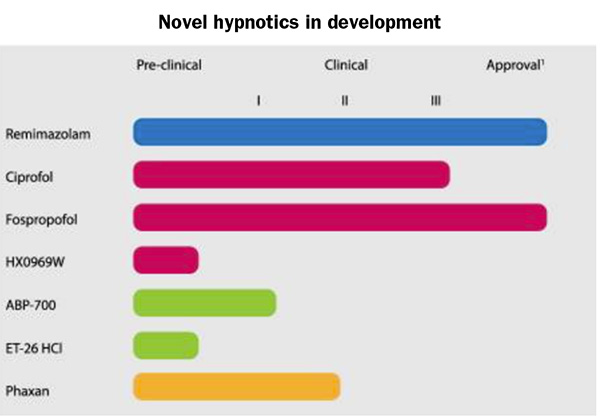
Editor's Note Although the use of propofol for colonoscopy has been rising due to beliefs that deep sedation leads to greater patient comfort, a recent systematic review and meta-analysis of nearly 1,500 patients from nine randomized controlled trials shows this view is not supported by available evidence. Published March 8…

The promise of quicker recovery and fewer complications from sedation, anesthesia, and pain management have drawn clinicians and patients alike to procedures performed in ambulatory surgery centers (ASCs) and other outpatient settings. However, sedation, anesthesia, and analgesia add their own risks to those of the procedure itself. Understanding the latest…

Editor's Note Patients with a history of obstructive sleep apnea (OSA) have a higher risk of delirium after high-complexity surgeries but not after those of moderate complexity, according to findings published in the March issue of Anesthesia and Analgesia. The study included 46,352 hospital patients older than 60 years who…

Editor's Note A new study finds that the same cells that are involved in preventing damage to the central nervous system – called microglia – help to awaken the brain following anesthesia. The findings appeared January 4 in the journal Nature. Using electron-microscopy-based synaptic reconstruction, the researchers could see the…
Editor's Note Researchers conducted the largest randomized study to date on use of the sedative midazolam in older patients, a drug sometimes used to calm patients prior to surgery. The results were published in JAMA Surgery on December 20. Highlights include: The study involved nine German hospitals and included more…
Editor's Note Anesthesiologist-administered or -directed sedation leads to higher rates of patient discharges to home rather than a long-term care (LTC) facility, according to a study presented at the Anesthesiology 2023 annual meeting. The study focused on interventional radiology (IR) procedures–specifically 9,682 patients who had sedation in the IR suite…
Editor's Note A study presented at the 2023 annual meeting of the Society for Ambulatory Anesthesia suggests that implementing ambulatory anesthesia services with propofol can significantly enhance various quality metrics in outpatient endoscopy procedures, Anesthesiology News August 28 reports. The study, led by Justin Routman, MD, director of non-OR anesthesia…
Cancellations of some surgical procedures during the COVID-19 pandemic and case rescheduling have been a major focus for perioperative leaders. But changes are also occurring in anesthesia practices. For many surgical procedures, the use of regional anesthesia or nerve blocks, coupled with light sedation, is reported to double if the…
Editor's Note The Food and Drug Administration, on April 30, identified the recall of the Alaris Infusion Pump Module 8100 as Class I, the most serious. The Pacific Medical Group (DBA Avante Health Solutions) is recalling the infusion pump because the front bezel components may crack or separate, leading to…
Editor's Note The Joint Commission, on January 13, announced that it had approved four new elements of performance (EPs) for office-based surgery practices that prescribe medication. The EPs for Medication Management Standard MM.04.01.01, which will become effective July 1, address the following: Having a written policy that identifies specific medication…